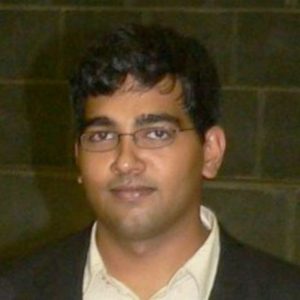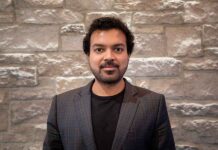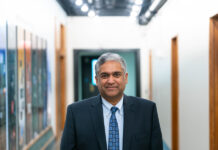CAMBRIDGE, MA–The School of Engineering AT MIT is welcoming 11 new faculty members—including at least two Indian-Americans– to its departments, institutes, labs, and centers, according to an announcement by MIT.

“I am pleased to welcome our outstanding new faculty,” says Anantha Chandrakasan, dean of the School of Engineering. “Their contributions as educators, researchers, and collaborators will enhance the engineering community and strengthen our global impact.”
Pulkit Agrawal will join the Department of Electrical Engineering and Computer Science as an assistant professor in July.
Agrawal earned a BS in electrical engineering from the Indian Institute of Technology, Kanpur, and was awarded the Director’s Gold Medal. He earned a PhD in computer science from the University of California at Berkeley. A co-founder of SafelyYou, Inc., Agrawal researches topics spanning robotics, deep learning, computer vision, and computational neuroscience. His work has appeared multiple times in MIT Technology Review, Quanta, New Scientist, the New York Post, and other outlets.
He is a recipient of the Signatures Fellow Award, a Fulbright science and technology award, the Goldman Sachs Global Leadership Award, OPJEMS, the Sridhar Memorial Prize, and IIT Kanpur’s academic excellence awards, among others. Agrawal also holds a “sangeet prabhakar” (the equivalent of bachelor’s degree in Indian classical music) and occasionally performs in music concerts.
Ashwin Gopinath joins the Department of Mechanical Engineering as an assistant professor this month. He received his PhD in electrical engineering from Boston University in 2010 and was awarded the outstanding doctoral thesis award by his department.

He is presently a research scientist in the Department of Bioengineering at the California Institute of Technology. His main research is at the intersection of DNA nanotechnology, micro-fabrication, synthetic biology, optical physics, and materials science. His main research is on DNA origami and design, up to wafer-scale self-assembly with molecular-scale control, and possibilities for microfabricated devices. His present application areas involve quantum optics, nanophotonics, single molecule biophysics, and molecular diagnostics.
In 2017, he received the Robert Dirks Molecular Programming Prize for his early career contributions to combining DNA nanotechnology and traditional semiconductor nanofabrication.
(Source: MIT News)
















